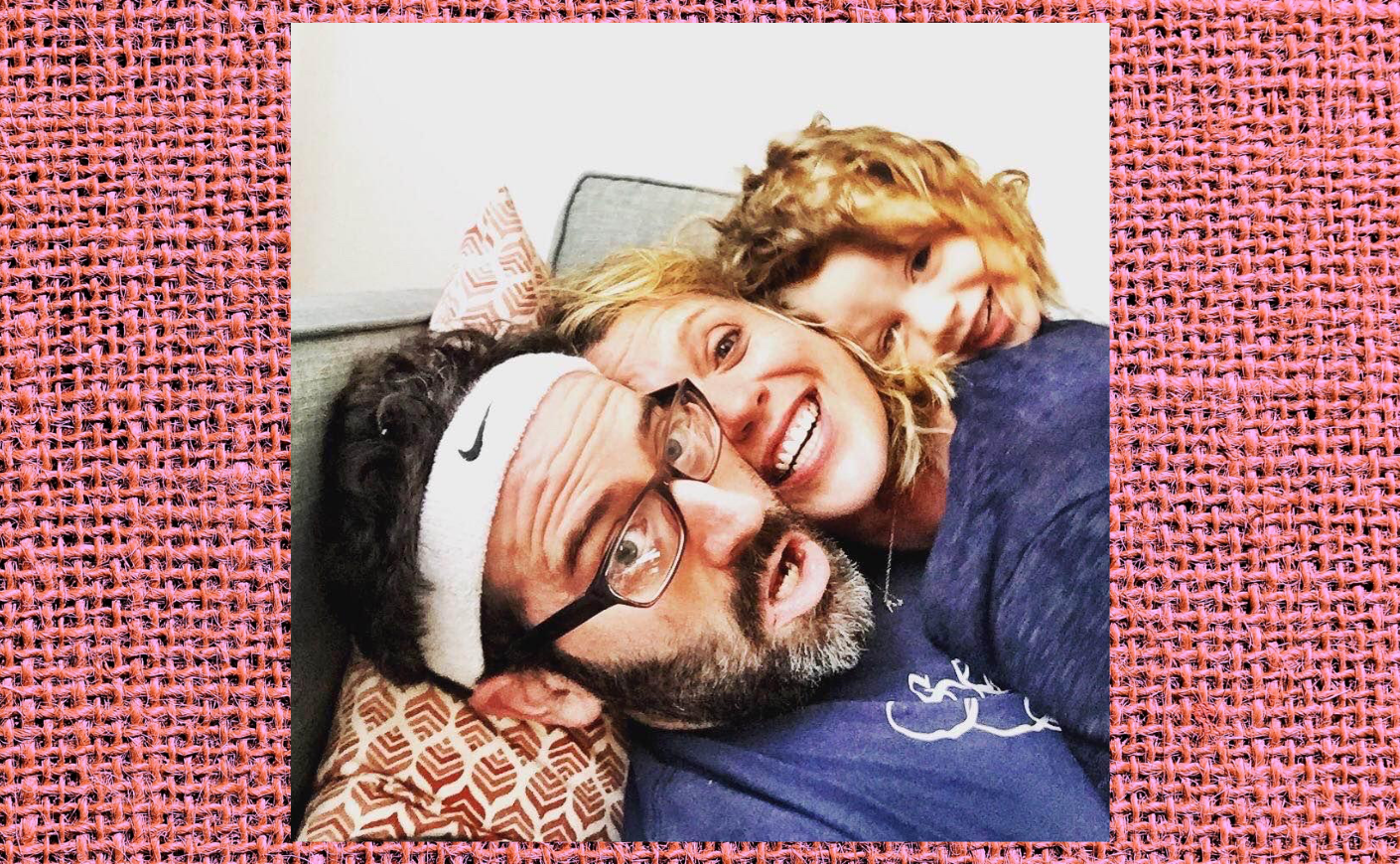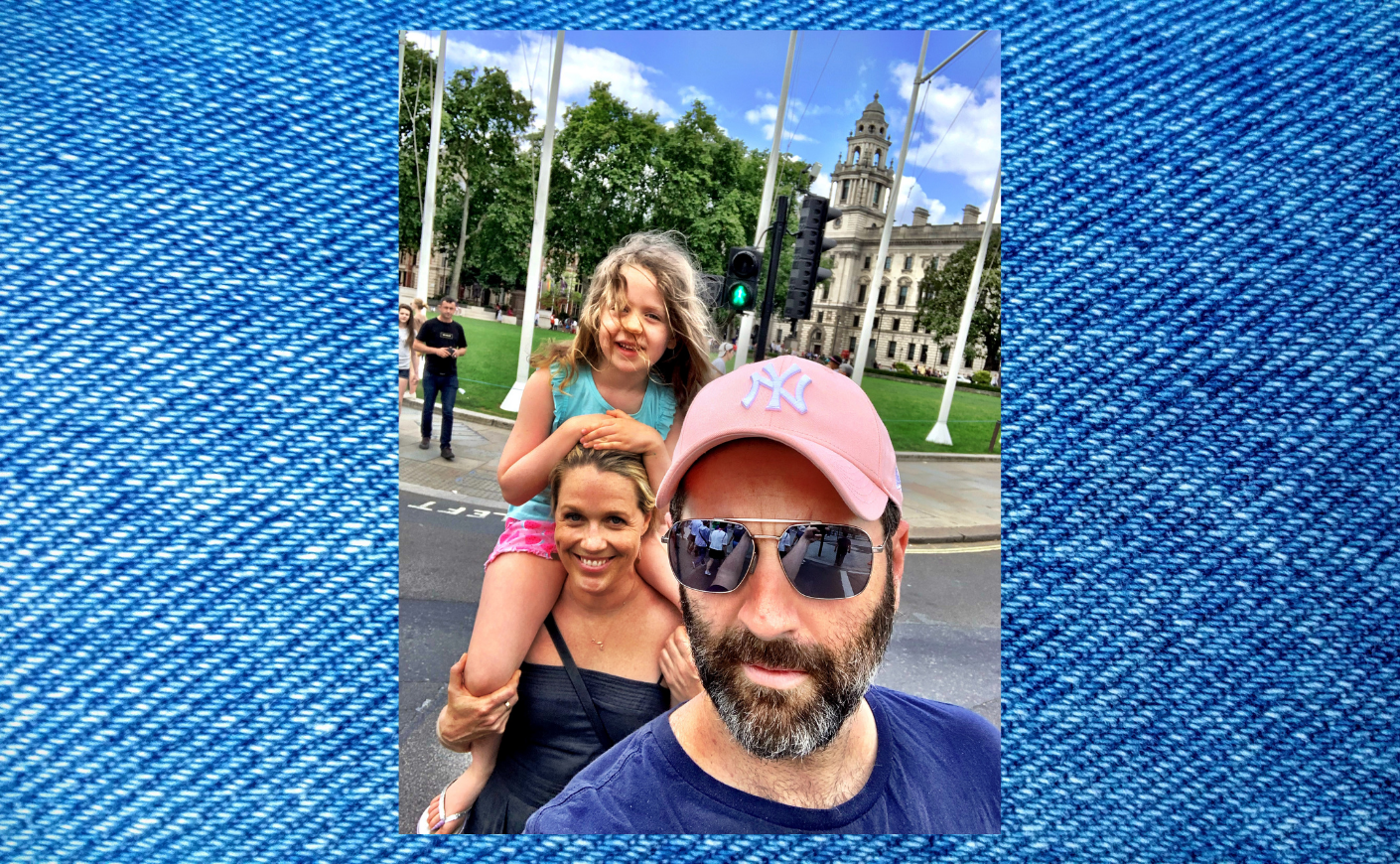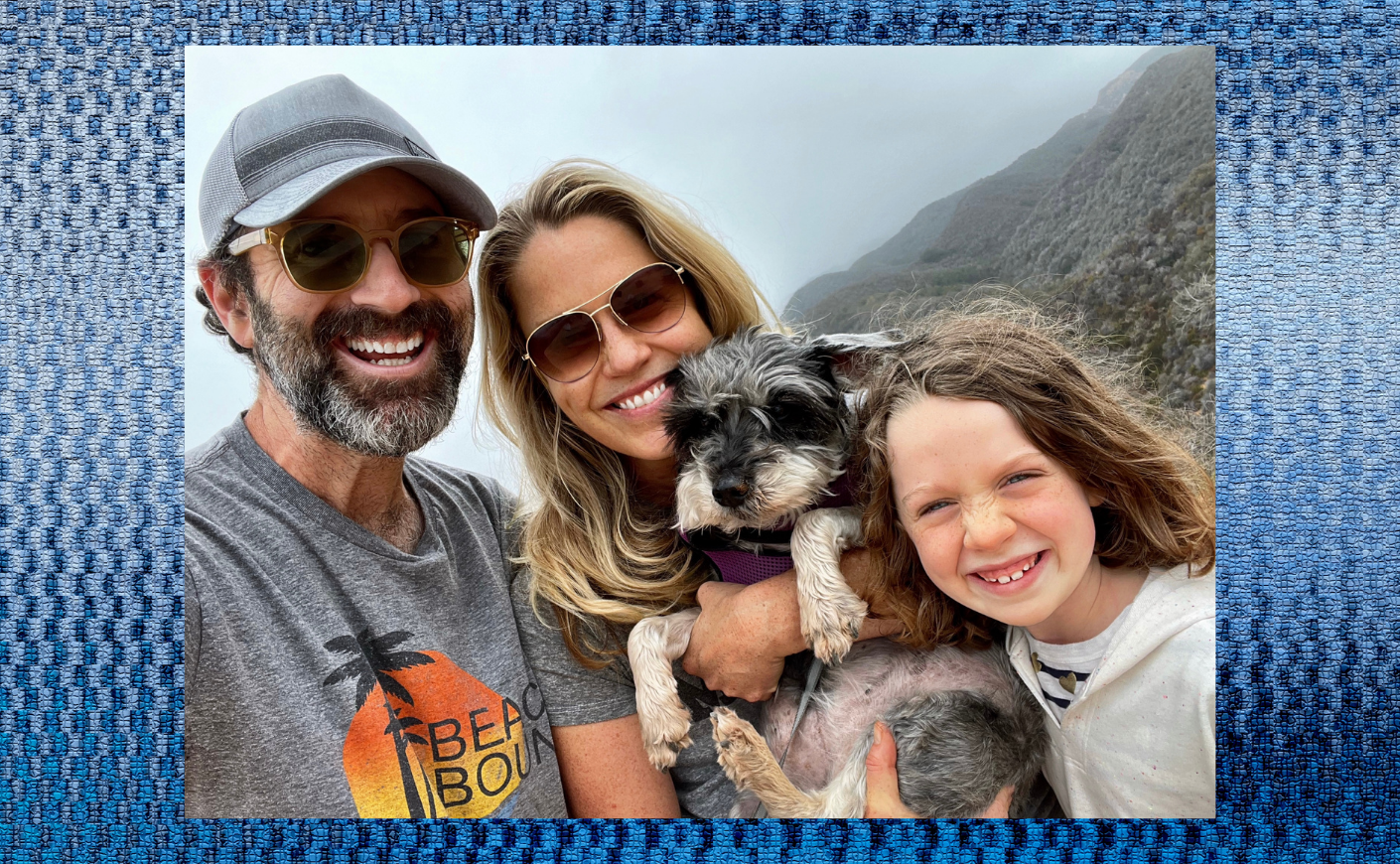Sometimes life throws a curveball so unexpected that you think every publication on the newsstand should be talking about just how terrible your circumstances are. Actress and comedian Jessica St. Clair has a name for that phenomenon.
“They’re what I call ‘People magazine moments,’ where you’re like, ‘This is so unbelievable. I can’t believe this is happening to me,’” she says. “But now I’ve learned that it does actually happen to more people than you think: Unbelievable, shitty things happen at the same time.”
For St. Clair and her husband, writer Dan O’Brien, that extraordinary moment came in March 2016, when she was 39 and he was 42. It was her final day of chemotherapy after being diagnosed with breast cancer the previous year and enduring a hellish six months of fighting for her life. The occasion should have been triumphant. Instead, they got their stranger-than-fiction twist: O’Brien discovered he had colon cancer.
“It was a complete shock,” St. Clair says.
The couple is speaking with KCM from London, where St. Clair is shooting a new season of the HBO sci-fi comedy Avenue 5. Accompanying them is their 7-year-old daughter, Bebe, and their aging Schnauzer, who — call up the editor of People — currently has cancer. “Our little old dog is going through chemo right now, which is very triggering,” St. Clair says.
The good news, if you can call it that, is that the dog is the only one in the household who’s currently sick. Today, O’Brien and St. Clair are both cancer-free. They’re deeply grateful, but also see this as pure luck. They didn’t fight any harder than anyone else who’s had cancer; they’re just two people who happened to make it.

But they still feel the aftershocks of their back-to-back diagnoses. O’Brien explores his complicated feelings in two new books, A Story That Happens and Our Cancers, both powerful meditations on being a husband, a father, and a human while dealing with the very real possibility that it could all come to an end.
As terrifying and awful as it was, cancer also bonded them in a way that only this kind of shared experience could. “When you’re in treatment,” O’Brien says, “you really just focus on the relationships that mean the most to you — giving and receiving love as much and as often as you can.”
By the time O’Brien got his diagnosis, St. Clair had not only endured chemo but also undergone a double mastectomy. She knew the hardship her husband was in for, and she immediately mobilized, tracking down the numbers of the best doctors and calling until they picked up. Recalling this period, O’Brien smiles with pride. “She’s produced her own TV show, so she was going to produce this,” he says.
“Going second, I had the easier experience,” O’Brien remembers. “Jessica could be my guide. I felt like she was six months further down a wilderness trail or something, and there was a sense that she was calling to me from further down this trail.”
“I’ll tell you what, that is ‘in sickness and in health,’” St. Clair says.

Our Cancers chronicles the day-to-day reality of fighting the disease as partners and parents, including scenes of O’Brien bathing their daughter and singing lullabies while St. Clair languishes in bed. But it’s also striking for its depiction of the mixed feelings that come after cancer.
In one passage, O’Brien describes the strange sensation of sometimes missing the way he was during his illness. “The feeling of missing it was a surprise to me, and it scared me.”
“He is concerned / he may unlearn / his wisdom,” O’Brien writes about himself. It’s largely about the “clarity” that comes with cancer.
“When you’re in treatment, you don’t think so much about your ego, you know, in terms of career, for example,” he says. “I was afraid, as I was healing, that I would lose touch with that clarity. The truth is, in the years since, you can carry it with you, but it’s not always there. Sometimes I get very frustrated and I say, ‘Why do I feel like I did before cancer?’ When some of those everyday, prosaic thoughts started to come back, it was upsetting to me.” But it symbolized him returning to a non-sick state. “I recognized they were coming back because I was healing and I was able to think again like a human who worries about career, what you’re going to make for dinner, and people who don’t really matter too much in your life.”
For St. Clair, what came after O’Brien’s successful treatment was challenging in a different way. In “producing” his recovery before she could celebrate her own, she found that as they both grew healthier, unresolved emotions bubbled up.
“It pressed pause on my own recovery, and once we got Dan through the really hard, hard part of it — which was all of it — I was left with a horrible feeling of panic, like, ‘OK, now I have to rid our lives of anything that could have possibly caused this.”
O’Brien’s poetry details this same compulsion to pin down the reason for their cancer. He ponders whether it could be their genes, or maybe the things they ate as children. Or perhaps it’s “the towers’ pulverized miasma” — the death cloud of toxic debris that hung over Manhattan after Sept. 11, 2001, when St. Clair, then his girlfriend, had an apartment eight blocks from the World Trade Center.
St. Clair’s post-cancer “nervous breakdown” (her words, which she likes using “only because it sounds very dramatic”) was about wanting to refresh everything and start again.
St. Clair says, “that was a darker time than going through treatment or watching Dan go through treatment because I truly didn’t know what was happening to me.”
She felt a need for some assistance: “Once you’re done with cancer, [doctors] are like, ‘OK, we’re on to the next person who’s almost dying,’” St. Clair says. “Everyone talks about being cast out in the great beyond, and it’s true. You need somebody to help you in the mental-health world. You just do. It’s too scary.”

Though much of their therapeutic work centered on the couple, there’s a third party to this tale: their daughter Bebe, who was a year old when St. Clair got her diagnosis and whose second birthday fell on the day of her mother’s mastectomy. Raising a child — a baby — during this turmoil complicated things exponentially.
O’Brien recalls days when he “felt very much like a single parent” caring for both his daughter and his wife. Then when he got sick, the roles reversed. The couple hid everything from Bebe, not wanting her to absorb the pain and fear that her parents felt.
“During Jessica’s treatment, there were periods where she had to be resting or sleeping, and we had to pretend that she wasn’t in the house,” O’Brien says. “And vice versa — my treatment was even longer, and I had two major surgeries. Bebe was getting older, so there were many times when I truly felt like I had to hide.”
Their daughter was, of course, a source of joy and love, too. She also gave them reason to get out of the house and not allow their lives to revolve solely around cancer. But, like everything in these circumstances, the feelings aren’t that simple.
“Yes, there is an energizing thing to that, but also, it sucks. You have to do all your crying in the shower or in the car,” St. Clair says.
Bebe turns eight this October, and still doesn’t know that her mom and dad had cancer. They’re not sure when they plan to tell her. “I want her to be at an age when it’s not too overwhelming or frightening,” O’Brien says. “I don’t want her to worry about us.”
Though they haven’t talked about their ordeal with their daughter yet, they’re eager to discuss it with anyone else. St. Clair likes the idea that someone might stumble upon their story and find a much-needed example of people who lived to tell the tale.
But O’Brien sometimes feels a slight superstition about sharing his story of survival. “I’m so astonished, it feels dangerous to talk about,” he explains. “The thing that keeps me from being quiet and just counting my blessings is wanting to break through that taboo of cancer and illness and wanting to be some small comfort, the way other writers and artists have been a comfort to me.”









